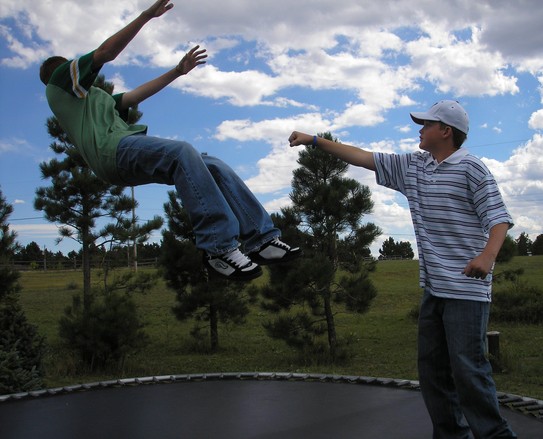

THE "AIA" reform, passed by Obama half a decade ago, has been good. It gave us the the Patent Trial and Appeal Board (PTAB). PTAB invalidates a lot of software patents (thousands of them), sending out the message or signaling the demise of such patents in general, owing to Alice from the US Supreme Court.
"PTAB invalidates a lot of software patents (thousands of them), sending out the message or signaling the demise of such patents in general, owing to Alice from the US Supreme Court."As one can imagine and even expect, the patent microcosm is up in arms over this. It is trying hard to decapitate the USPTO and to shame the Court of Appeals for the Federal Circuit (CAFC) into slowing PTAB down (shame on Patently-O).
The other day, writing about AIA in this post, Patently-O took note of the US "PTO’s low-quality examination of software and business methods in the late 1990s and early 2000s."
"The problem was, all along, the granting of any patents on software and business methods, irrespective of so-called 'quality' (whatever that means, it's a distraction often used by proponents of software patents who look for excuses)."No, the problem isn't low-quality "examination of software and business methods." The problem was, all along, the granting of any patents on software and business methods, irrespective of so-called 'quality' (whatever that means, it's a distraction often used by proponents of software patents who look for excuses).
Based on another post from Patently-O, Michelle Lee is still in charge of the USPTO (don't believe villainous rumours and insults), which means that AIA/PTAB/reform is defended. Here is the relevant part:
After receiving party briefs in this case, the Supreme Court requested a responsive brief from the Michelle Lee in her role as PTO Director on the constitutionality of the AIA trial system. That brief has now been by the new acting Solicitor General Jeff Wall who handled a number of patent cases in private practice.
"We certainly hope that the highest US court recognises that practicing companies love AIA (and Lee), whereas it's the parasites who attack everything."Patently-O tends to cherry-pick cases that help the patent maximalists, but that's nothing new. By contrast, Patently-O covered this case where CAFC was going further than even PTAB, invalidating patents on software in spite of PTAB tolerating these.
Here is the Cisco petition:
After the PTO initiated an inter partes reexamination, the patentee (Cirrex) dropped the original claims (1-34) and added new claims (35-124) of its ‘082 patent.[1] In its final decision, the PTAB affirmed the examiner’s decision that most of the added claims were invalid as lacking written description support. The Board did, however, find five of the claims patentable. On appeal, the Federal Circuit partially reversed – finding all of the claims invalid as lacking written description support.
"If Lee was replaced by someone like Battistelli, they would be doomed for 'daring' to reduce the number of patents (or so-called 'production')."Notice the role of Microsoft's patent troll here (IV).
Software patents are generally dropping like flies as at PTAB, for instance, the "first quarter of this year saw the most inter partes reviews (IPRs) filed on record," IAM admits, citing data from Lex Machina again. Here is the relevant part:
But which law firms lead the way in terms of their performance at the PTAB? Some data providers, such as Lex Machina, provide fairly comprehensive breakdowns of how many reviews a firm has filed and how they have fared for their clients, by tracking things like the numbers of cases they have had instituted, the number that have been denied and the number that have settled.